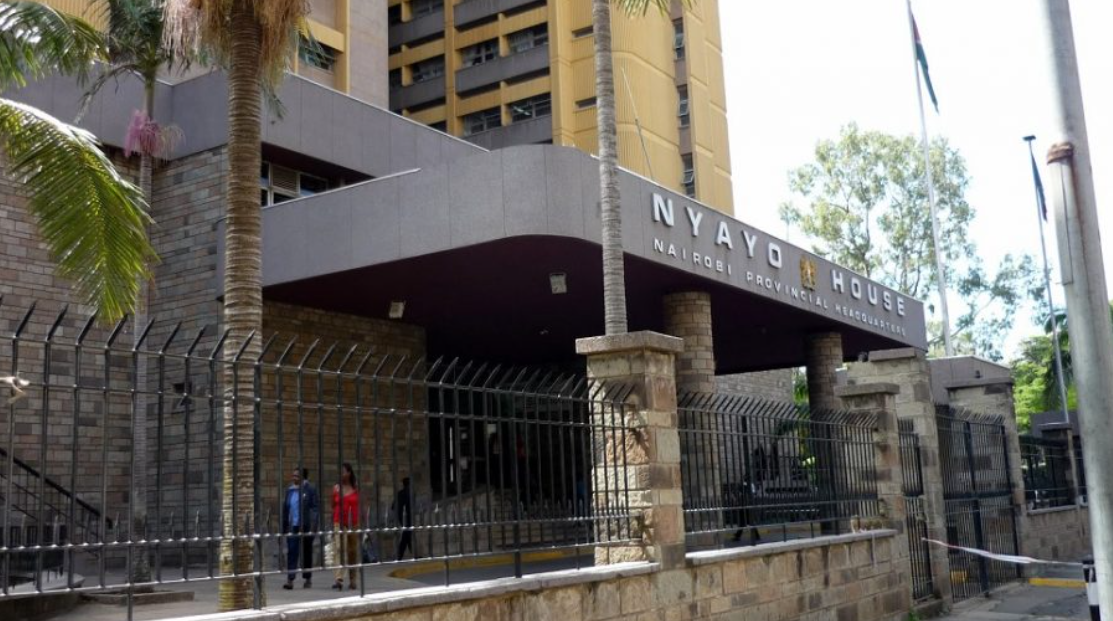A new report by Auditor General Nancy Gathungu has revealed a shocking truth—16 ministries, departments, and agencies do not have title deeds for the public land they occupy.
Among them are iconic landmarks like Harambee House and Nyayo House. These buildings are at the heart of Kenya’s government operations. Yet, without ownership documents, their legal status is dangerously shaky.
This revelation raises urgent questions about accountability, corruption, and the security of state property. How did it get this bad? Is Kenya’s government sitting on a ticking time bomb, and what’s being done about it?

Missing Titles Put Prime Government Buildings in Legal Limbo
The 2023/24 Auditor General’s report lays bare a crisis that strikes at the core of Kenya’s public administration. For years, government offices have sat on land without proper ownership documents. Gathungu’s audit confirms what many feared: key institutions like the Ministry of Interior and National Administration have failed to secure title deeds for their headquarters.
Harambee House, a symbol of Kenya’s presidency, is one of the affected buildings. Located in Nairobi’s central business district, it houses high-level offices, including:
Sheria House
Office of the President
Ministry of Public Service and Human Capital Development
Office of the Chief of Staff and Head of Public Service
Similarly, Nyayo House, home to the crucial Immigration Department and Nairobi Region headquarters, also lacks proof of ownership. This building processes passports and handles border control, making its security a matter of national concern.
Without title deeds, the government cannot fully safeguard these properties. Even worse, the Auditor General warns that it’s impossible to verify if these ministries and departments actually own the land they claim. This exposes public property to potential disputes, land grabbing, and costly legal battles.
Affordable Housing Projects Jeopardized by Missing Titles
The scandal doesn’t stop at high-profile government buildings. Kenya’s ambitious Affordable Housing Program, a flagship project meant to address the country’s housing crisis, is also caught up in the mess.
The Auditor General’s report reveals that the State Department for Housing and Urban Development has no ownership documents for the land where these houses are being built.
This is no small oversight. The affordable housing project is worth Sh49.45 billion, funded partly by the Housing Levy.
As of December 2024, the government had collected Sh88.7 billion through this levy, but a staggering Sh46 billion of it was sitting in Treasury bills rather than being used for construction.
The report warns that without original title deeds, it’s unclear how sectional titles for the new homes will be processed. This means thousands of Kenyans hoping to buy affordable houses could be left in the lurch. It also raises serious red flags about possible corruption and misuse of public funds.

Other Ministries Caught in the Missing Titles Web
The problem is widespread. The Auditor General’s report lists multiple ministries and departments that have failed to provide land ownership documents:
National Police Service and IEBC: Both lack title deeds for various parcels of land across the country. This raises security concerns, especially for facilities critical to law enforcement and elections.
State Department of Foreign Affairs: No title deed exists for Kenya’s Mission in Tel Aviv, Israel. This could cause diplomatic embarrassments if ownership is challenged.
Ministry of Health: The department could not produce a title deed for the land where its headquarters stands. This weakens legal protections for a key ministry that is essential in times of health crises.
State Law Office and Department of Justice: Shockingly, no title deed or sale agreement exists for government land in Malindi.
Even the State Department for Correctional Services is entangled in this mess. Several correctional facilities have no proof of ownership for the land they sit on.
The report highlights around ten parcels of prison land in Thika, Narok, Nakuru, Malindi, and Kisumu that have already been encroached on by individuals, churches, and even other government bodies.
Verification visits in November 2024 revealed fresh cases of encroachment, raising urgent concerns about the safeguarding and security of correctional facilities.
What Needs to Happen Next
The Auditor General is clear on the way forward. She recommends urgent collaboration between the Ministry of Lands and Physical Planning, the National Land Commission, and the National Treasury to resolve this deepening crisis. Without swift action, public land remains at risk of being stolen, misused, or lost altogether.
Kenya’s land scandals are nothing new, but the scale of this exposure is staggering. The fact that the government itself is failing to secure title deeds for prime public property speaks to a dangerous level of negligence—or worse, collusion.
As ordinary Kenyans struggle to secure their own title deeds, it’s an insult that the government has not put its own house in order. Parliament, anti-corruption agencies, and civil society must now demand full transparency and accountability.
If left unresolved, the missing titles scandal could lead to enormous financial losses and undermine the public’s trust in government. Kenya cannot afford to let that happen.











































